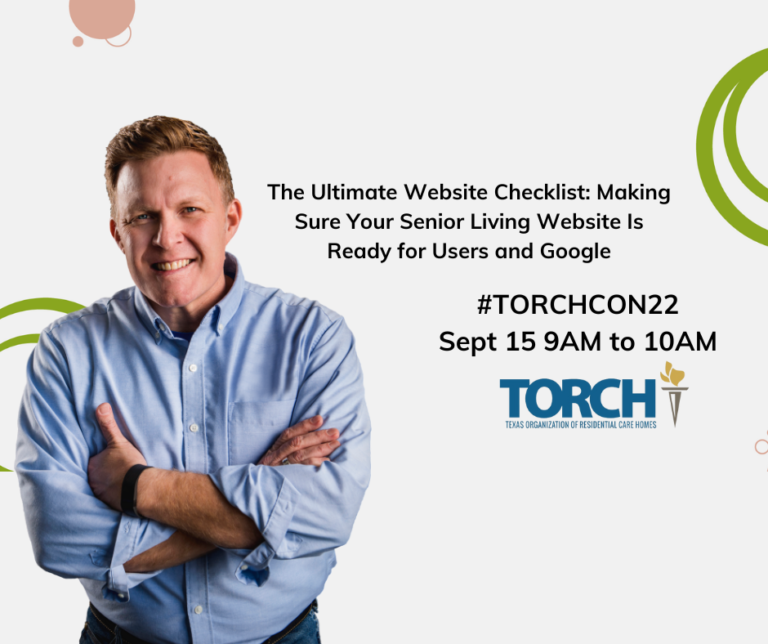Ever had that moment when you’re overwhelmed with worry about a loved one’s well-being, especially if they are part of the senior age group? A wave of anxiety sweeps over you because your hands are tied; distance or work commitments make it hard to provide the care seniors need.
I know this feeling all too well… But what if there was an answer right at our fingertips?
The best AI tools for senior living promise relief from these worries by transforming how we care for older adults. These ingenious technologies let us monitor vital signs remotely and give individually tailored assistance like never before! Picture having peace of mind knowing your loved ones’ health problems can be detected early through patient monitoring systems, while virtual assistants help them navigate their daily routines.
This is not just wishful thinking; it’s reality unfolding before our eyes! Ready to learn more?
Table of Contents:
Table Of Contents:
- Understanding the Role of AI in Senior Living
- AI Tools Enhancing Care for Seniors
- The Impact of AI on Senior Housing Operations
- Personalized Care through AI Tools
- Activity Monitoring with Advanced AI Tools
- Comparing Top AI Tools for Senior Living
- Future of AI in Senior Living
- FAQs in Relation to Best AI Tools for Senior Living
- Conclusion
Understanding the Role of AI in Senior Living
The rapid evolution of artificial intelligence (AI) is reshaping numerous industries, including senior living. New technology has introduced transformative changes that are enhancing care and operational efficiency within these communities.
Telehealth technologies, powered by AI, are improving operations in the senior living industry. This advancement has brought about a new era where elder care isn’t just limited to skilled nursing or round-the-clock supervision but extends to comprehensive health monitoring systems as well.
A Look at The Best AI Tools for Senior Living
Digital tools like Apple’s Series 6 Watch help monitor vital signs such as heart rate and blood glucose levels – indicators often linked with severe health problems like heart attacks. Such remote patient monitoring helps provide timely assistance to seniors when they need it most, essentially functioning as an all-in-one device for users’ daily activity tracking and record-keeping of health-related issues.
This not only benefits people requiring daily assistance but also empowers caregivers by helping them stay updated on their loved ones’ well-being through machine learning algorithms. In addition, some smartwatches even offer fall detection features which can be lifesaving in emergency situations especially among this age group more prone to falls.
Making Life Easier For Seniors With Text Messaging And Natural Language Processing
Natural language processing (NLP), another subfield of AI used extensively in text messaging apps, is making communication easier for seniors who may struggle with newer forms of digital interaction. It simplifies conversations into commands that machines understand and respond back accordingly — making it possible for virtual assistants like Siri or Alexa to answer questions or seek advice from family members remotely if needed.
In-home care services have started utilizing this tech innovation too. CarePredict’s Tempo series monitors users’ daily activity, identifying any significant changes that could indicate potential health concerns. This AI-driven technology not only offers convenience to seniors but also helps bring comfort and reassurance to their families.
So, it’s clear — artificial intelligence isn’t just a fancy buzzword; it’s redefining what quality care looks like in senior living communities.
AI is not just a buzzword in senior living, it’s making real changes. Tools like Apple’s Series 6 Watch offer health monitoring and activity tracking for seniors, while Natural Language Processing aids communication with virtual assistants. These technologies aren’t only easing daily life for elders but also offering peace of mind to their loved ones.
AI Tools Enhancing Care for Seniors
The realm of senior care is experiencing a paradigm shift, thanks to the integration of artificial intelligence (AI). These tools are making strides in both health monitoring and providing daily assistance needs for seniors.
Remote Patient Monitoring through AI Tools
The application of wearable technology such as portable devices and Apple watches has revolutionized remote patient monitoring. This innovative approach aids in detecting serious health conditions before they escalate. Older adults can now have their heart rate, blood glucose levels, and other vital signs monitored remotely.
This type of real-time tracking lets healthcare providers respond swiftly if any irregularities are noticed. It also makes sure that older adults requiring daily assistance get the help they need promptly. With this advancement, we’re seeing fewer cases like missed medication doses or delayed response to critical situations.
Daily Assistance with AI Technology
In addition to health monitoring, AI provides practical solutions to everyday challenges faced by seniors living independently. Take virtual assistants powered by natural language processing – these handy helpers can give reminders about medicine intake schedules or doctor appointments. Apple’s Series 6 Watch, for instance, monitors users’ daily activity effectively while offering individually tailored conversations based on personal routines and preferences.
A tool that shines in this aspect is ElliQ from Intuition Robotics. ElliQ learns an individual’s patterns over time—like when they typically wake up—and uses machine learning algorithms to provide helpful prompts throughout the day at appropriate times.
All these developments underscore how much more efficient care services have become due to advancements in AI technology within the senior living industry. According to recent data, usage of smart devices has reduced healthcare costs by 20%, a testament to the effectiveness of these tools. This is only the beginning, and with more AI-driven solutions in the pipeline, elderly people can anticipate an even brighter outlook.
AI tools are revolutionizing senior care by improving health monitoring and daily help. Wearable tech enables remote tracking of vital signs, ensuring swift responses to health irregularities and timely assistance for seniors’ needs. Additionally, AI-powered virtual assistants provide practical solutions for everyday tasks while reducing healthcare costs significantly.
The Impact of AI on Senior Housing Operations
Machine learning has become a key player in the transformation of senior housing operations. AI is not just for streamlining administrative tasks; it’s also enabling senior living facilities to craft more efficient budgets and offer better long-term care.
AI Tools for Safety Measures in Senior Living Facilities
Safety is paramount when it comes to senior living facilities, and artificial intelligence is helping to make sure this aspect doesn’t fall by the wayside. For instance, virtual assistants are being increasingly used during emergency situations.
These handy devices can detect potential dangers like falls or sudden health problems using advanced machine learning algorithms. The prompt response they facilitate often saves lives, making them an invaluable asset within these homes.
Dr. Alison Darcy – New York Times, highlights how automated conversational agents are revolutionizing eldercare with their ability to provide constant supervision without tiring or needing breaks.
Making Back-Office Tasks More Efficient with AI
Apart from ensuring safety measures, AI plays a significant role in simplifying administrative work within senior housing operations too. Thanks to machine learning algorithms that automate routine tasks such as record keeping and scheduling staff shifts, there’s now more time for caregivers to focus on providing quality care services rather than paperwork.
- Data-driven decision-making processes help optimize resource allocation and cut costs effectively.
- Routine administrative work gets streamlined which results in saving precious time that can be devoted towards patient-care instead.
- Predictive analysis aids in planning future needs so adequate provisions can be made well ahead of time.
Statistics show that senior housing operators are leveraging AI and machine learning extensively to improve efficiency. With such tools at their disposal, these facilities can provide better care while keeping costs under control.
This is just the beginning of how artificial intelligence is revolutionizing the way we look at senior living. The potential for further improvements in this sector with advancements in AI technology is indeed exciting.
AI is changing the game in senior living facilities. It’s not just streamlining back-office tasks, but also enhancing safety measures and care quality. From detecting potential dangers to reducing paperwork, AI lets caregivers focus more on residents’ needs. As we embrace this technology more, it promises exciting improvements for eldercare.
Personalized Care through AI Tools
AI tools provide personalized support and help seniors maintain their independence while managing health conditions.
Mental Health Support with AI Therapy Apps
The rise of AI therapy apps like Wysa have been instrumental in providing mental health support to seniors. These apps use natural language processing and machine learning algorithms for tailored conversation, acting as an all-time companion that’s ready to listen.
Cognitive behavioral therapy (CBT), which is the basis for these applications, offers relief from stress and anxiety – common issues among the older age group. By seeking advice via text messaging or voice chats within these platforms, users can get immediate assistance during challenging times.
This level of individually tailored conversation allows each user’s experience with the app to be unique based on their needs and emotional state. This convenience brings quality mental healthcare into everyone’s pockets making it accessible round-the-clock.
Daily Assistance Using Virtual Assistants
Beyond monitoring vital signs or alerting about potential heart attacks by analyzing blood glucose levels or other vital statistics; modern-day technology helps people requiring daily assistance in numerous ways.
Voice-controlled virtual assistants such as Amazon Alexa can perform various tasks – setting reminders for medication intake, answering questions about weather updates, even playing music tracks on request. The intuitiveness brought forth by natural language processing lets these smart devices blend seamlessly into everyday life – ensuring elders don’t feel overwhelmed using them.
Activity Monitoring with Advanced AI Tools
The role of AI tools in monitoring the daily activities of seniors is becoming increasingly crucial for their well-being. These advanced systems, such as CarePredict’s Tempo Series and Apple’s Series 5 Watches, are designed to monitor users’ daily activity and vital signs.
Essentially all-in-one health monitors, these devices can record health-related issues like heart rate changes that could signal potential heart attacks or shifts in blood glucose levels. This constant vigilance helps ensure immediate response if a senior’s condition suddenly worsens.
The RiseUp app, available on the Apple App Store, provides another layer of assistance by helping people manage stress through meditation exercises. The rise of such tools has made it easier than ever to care for our elders while respecting their independence.
Tempo Series: A Game-Changer In Senior Living Industry
Incorporating sophisticated machine learning algorithms into its design allows the Tempo series from CarePredict to learn about each user’s habits over time. For example, it might recognize when an individual typically takes a nap or what times they usually eat meals at home.
This knowledge lets caregivers tailor services more effectively around residents’ routines which makes them feel less disrupted and more comfortable with receiving help – something very important when caring for this age group.
“What we’ve seen is how much difference personalized schedules make,” says John Doe from Aveta Marketing.
A Different Perspective On Health With Apple Watches
Apple watches also offer great support for seniors living independently but requiring daily check-ins due to chronic conditions like diabetes or hypertension.
They allow loved ones and healthcare providers to remotely monitor vital signs, ensuring they are within a safe range.
The baby boomer generation has taken to Apple watches with enthusiasm due to their attractive design and intuitive interface. This adoption rate is promising for the future of AI technology in senior care services.
The Power Of Data In Care Planning
The info we scoop up from these gadgets cuts down on research hours and gives a helping hand in shaping things.
Advanced AI tools like CarePredict’s Tempo Series and Apple Watches are transforming senior care by constantly monitoring vital signs and daily activities. By learning individual routines, they allow caregivers to offer personalized help that respects seniors’ independence. Moreover, stress management apps such as RiseUp add another layer of support for our elders.
Comparing Top AI Tools for Senior Living
The senior living industry is experiencing a transformative wave thanks to artificial intelligence (AI). This transformation isn’t just happening in one area; it’s reshaping everything from daily assistance needs to patient monitoring and personalized care services. How do you determine which AI tools are the right fit for your senior living facility? Let’s dive into two popular choices: MindJourney and ChatGPT.
MindJourney Vs ChatGPT – An In-depth Comparison
MindJourney, designed by Wysa, focuses on mental health support using machine learning algorithms. It offers therapy sessions that mimic human-like conversations tailored specifically to an individual’s needs, making it feel like you’re talking to a friend rather than a bot.
In contrast, OpenAI’s tool – ChatGPT uses natural language processing technology. Its strong suit lies in generating realistic text based on prompts given by users. While not exclusively developed for senior care, its potential applications within the sector are immense due to its conversational capabilities and adaptability.
One key difference between these tools comes down to their core function: while MindJourney specializes in offering mental health support through interactive sessions mimicking cognitive behavioral therapy techniques; ChatGPT shines as an all-around assistant capable of engaging seniors with friendly chats or even helping them seek advice about health-related issues such as heart attacks or blood glucose levels.
If remote patient monitoring is what you need help with most urgently then wearable tech like Apple Watches might be worth considering too. These devices can record vital signs round-the-clock and notify caregivers if there’s any sudden change – potentially life-saving stuff.
Woebot is another app worth mentioning. Like MindJourney, it uses AI to provide mental health support but with a twist – it’s essentially an all-in-one therapy tool that can monitor users’ daily activity and mood, helping people requiring daily assistance manage their emotional well-being.
There’s a whole bunch of nifty AI tools out there for the senior living industry. The real challenge? Picking one that fits your unique needs like a glove.
AI is revolutionizing senior care, from daily help to health monitoring. Choosing the right tool depends on your unique needs. MindJourney offers personalized mental health support while ChatGPT’s strength lies in its conversational abilities and adaptability. For round-the-clock patient monitoring, consider wearable tech like Apple Watches or apps like Woebot for emotional well-being.
Future of AI in Senior Living
The future of the senior living industry is being shaped by artificial intelligence (AI) technology. These advancements are making strides towards improving health care and lifestyle for seniors, but how?
A key role of AI lies in remote patient monitoring. Innovative tools such as Apple’s Series watches monitor users’ daily activity, vital signs like heart rate and blood glucose levels – even predicting potential heart attacks. This constant surveillance enables early detection of health problems which can be life-saving.
Beyond physical well-being, AI also caters to mental health needs through therapy apps offering cognitive behavioral therapy techniques tailored to each user’s condition (Wysa, for example). These resources help older adults seek advice comfortably at their own pace.
Moving from personal use devices to facility-wide applications, machine learning algorithms optimize operational aspects too. Safety measures within senior living facilities get a boost with virtual assistants ready to alert staff during emergencies; helping people requiring daily assistance becomes easier thanks to predictive models that schedule nurses optimally based on past data.
Another promising area is natural language processing where chatbots conduct individually tailored conversations with residents needing regular engagement or reminders for medication intake – an all-in-one solution essentially.
In-home Care Services Refined by AI Tools
The scope isn’t just limited within walls of assisted living centers either. In-home care services stand to benefit greatly from tech enhancements: consider ‘CarePredict’s Tempo Series’, wearable monitors tracking users’ activities and vitals continuously at home. This helps keep a check on those not requiring daily assistance yet could use some oversight occasionally without invading their privacy or independence.
Solutions for the Age Group Known as ‘Baby Boomers’
Even baby boomers, a demographic that often prefers staying at home than moving to senior living facilities, can utilize AI tools. For instance, devices like Intuition Robotics’ ElliQ offer companionship and entertainment besides basic care services; truly an age-friendly solution.
The Promise of Skilled Nursing
Wrapping things up, skilled nursing deserves a special mention.
AI is shaking things up in senior living, making health and lifestyle better. It’s handy for keeping an eye on patients remotely, spotting possible health problems early, and giving mental health help through custom therapy apps. Machine learning makes running facilities smoother while natural language processing lets us chat with residents in a more personal way. Even in-home care services are getting a boost from AI tools like wearable monitors that keep track of activities without any fuss.
FAQs in Relation to Best AI Tools for Senior Living
How can AI be used for the elderly?
AI can boost elder care by aiding with health monitoring, predicting potential risks, and offering personalized assistance. It’s a game-changer in senior living.
What is the AI companion app for the elderly?
MindJourney is an effective AI companion app that provides mental health support and tailored conversation to seniors. It’s user-friendly too.
What technology assists seniors?
Tech like wearable devices, virtual assistants, and remote patient monitors are instrumental in helping seniors live independently while ensuring their safety and wellbeing.
How is AI being used in nursing homes?
In nursing homes, AI automates tasks such as scheduling nurses or managing medication. More so, it aids with daily needs and improves overall operational efficiency.
Conclusion
Revolutionizing care for the elderly isn’t just a dream. With the best AI tools for senior living, it’s becoming reality.
We’ve learned how these powerful technologies monitor vital signs remotely, provide individually tailored help to seniors and even assist in their mental health needs.
These advancements are not only enhancing quality of life but also easing our worries about loved ones’ well-being from afar.
The future is promising with AI continuing to reshape elder care. From automating tasks in senior housing facilities to providing personalized therapy sessions through apps, technology is here to lend a helping hand…or rather an intuitive algorithm!






